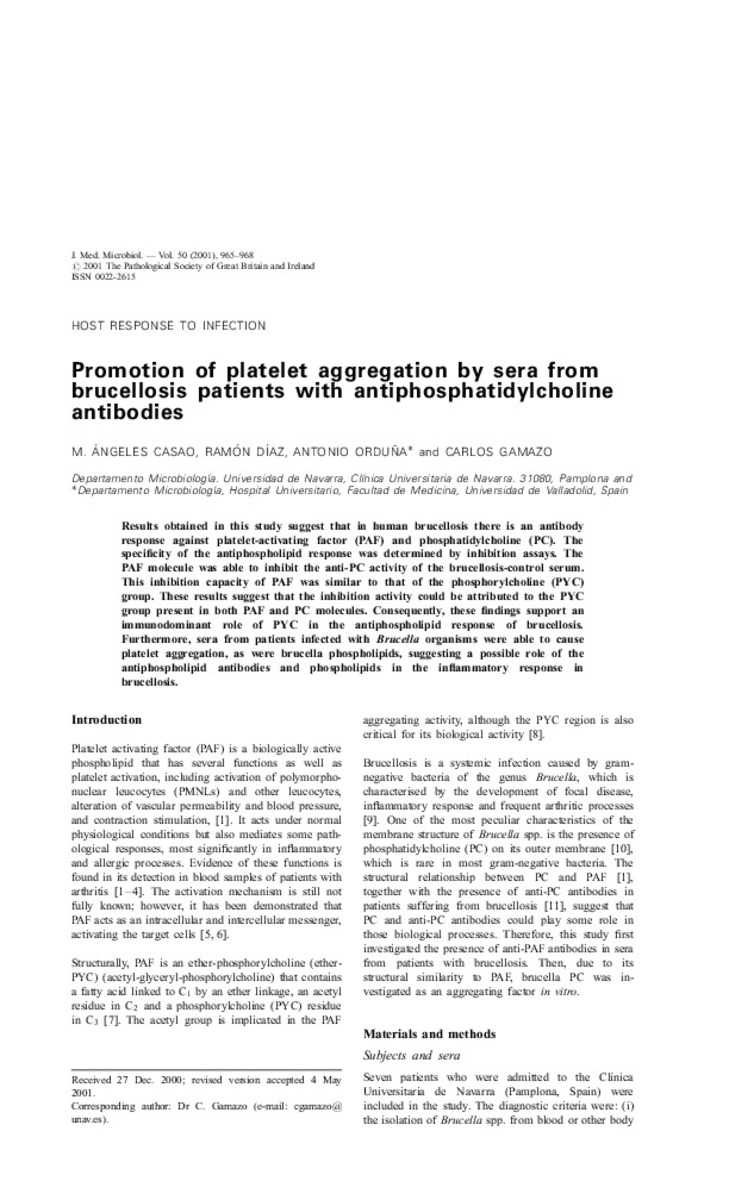Promotion of platelet aggregation by sera from brucellosis patients with antiphosphatidylcholine antibodies
Palabras clave :
Antibodies, Bacterial/blood/immunology
Antibody Specificity
Brucellosis/immunology/physiopathology
Fecha de publicación :
2001
Editorial :
Society for General Microbiology
Cita:
Casao MA, Diaz R, Orduna A, Gamazo C. Promotion of platelet aggregation by sera from brucellosis patients with antiphosphatidylcholine antibodies. J Med Microbiol 2001 Nov;50(11):965-968.
Aparece en las colecciones:
Estadísticas e impacto
0 citas en

0 citas en

Los ítems de Dadun están protegidos por copyright, con todos los derechos reservados, a menos que se indique lo contrario.










